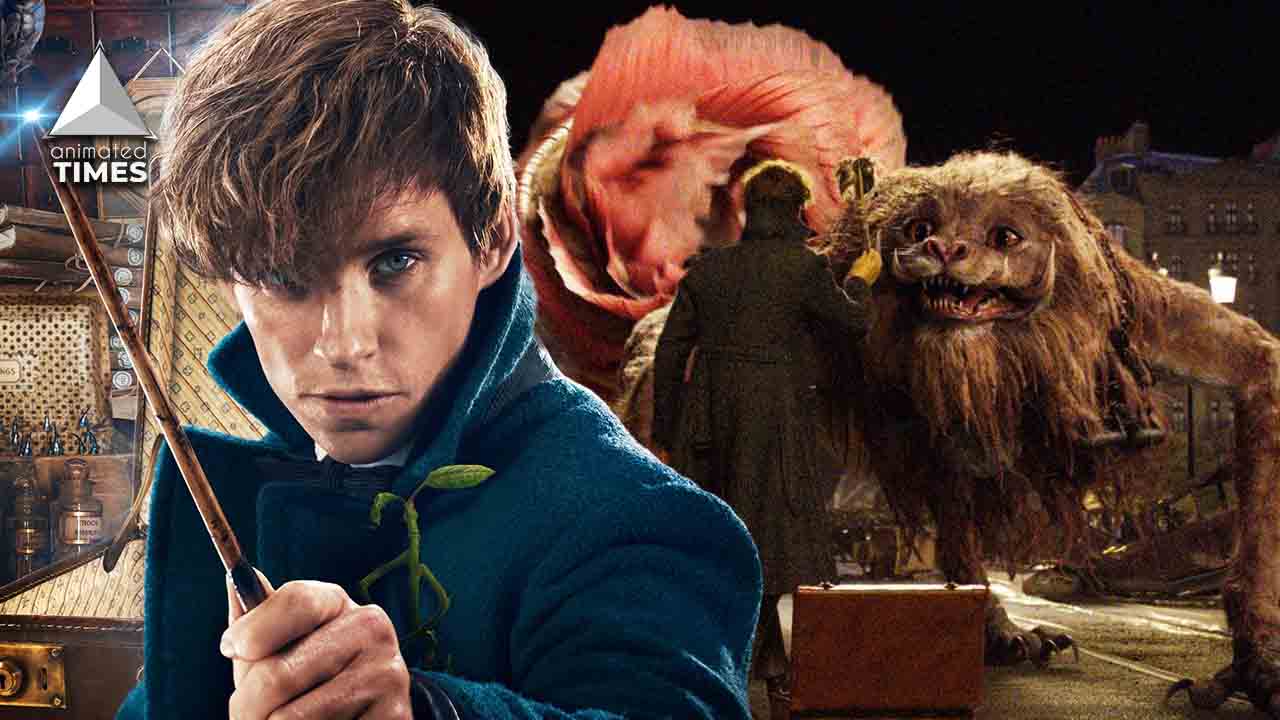How A Remake Fantastic Beasts Movie May Correct The Series’ Flaws
The Fantastic Beasts and Where to Find Them films provided a fresh perspective on the wizarding world:

The Fantastic Beasts and Where to Find Them films were a fresh perspective on the wizarding world, but with the shadow of Harry Potter lurking over them, a prequel series may correct their errors. Fantastic Beasts and Where to Find Them was originally released as a supplement to the original novels and served as an in-universe textbook for Hogwarts’ magical creatures class. In 2016, a very loose version that served as a precursor to J.K. Rowling’s Harry Potter canon was released in cinemas. The films were originally intended to chronicle the life of the book’s author, Newt Scamander, and his globe-trotting escapades. The Fantastic Beasts films, on the other hand, immediately turned their attention to the mysteries held by Hogwarts headmaster Albus Dumbledore. Although the films now center on his confrontations with Gellert Grindelwald, a television series might take Newt Scamander back to his roots and present stories that only the naturalist can tell. It solves a long-standing issue in film: forgetting that Newt isn’t The Boy Who Lived; he’s a magizoologist and his own character.
The films in the Fantastic Beasts and Where to Find Them series rely more on the crutch of Hogwarts than on the creatures Scamander studies:

The films in the Fantastic Beasts and Where to Find Them series rely more on the crutch of Hogwarts than on the creatures Scamander investigates. What began as an adventure in the larger wizarding world grew more focused on Albus Dumbledore’s fight with the evil Gellert Grindelwald and his war on Muggles. For many, the films are at their finest when they stay loyal to Newt’s original message: “There are no unusual creatures, only blinkered people.” This is why a TV show may be a much-needed corrective measure. A prequel set during the drafting of his book has the opportunity to correct Fantastic Beast’s major flaws, address real-world challenges, and go beyond the confines of old Harry Potter history. The first novel was justified by the wizarding world’s outer mythos, and a Fantastic Beasts series should expand on it. The films provided insights into locations like America and how these mystical civilizations differ from those seen in the United Kingdom. However, Newt noted other regions in his book, such as Australia and Asia, which give new and different settings for a television series to conceive. Furthermore, it may provide answers to issues regarding wizarding culture and its interaction with nature. The world is much larger than the movies ever gave it credit for, and it doesn’t necessarily have to revolve around Hogwarts. A prologue is a terrific way to establish this while also doing something different.
The sequels feature a familiar but already well-trodden situation in Rowling’s books: A dark wizard attempting to rule both worlds:

In Rowling’s books, the sequels provide a similar but already well-trodden scenario: a dark wizard seeking to dominate both realms. The first film portrayed the narrative of amazing monsters that were misunderstood, as well as politics and prejudice. A series about animals provides an opportunity to present fresh stories and examine real-life concerns that animals confront, such as conservation and animal trafficking. For example, one episode may involve a young witch who receives a Christmas animal that turns out to be more of a problem than she can handle. Newt must trap it and explain that creatures such as this are gifts, but they are not gifts. The Fantastic Beasts films contain a flaw, but Newt Scamander’s exploits are not doomed. A Fantastic Beasts and Where to Find Them prequel may be just what the wizarding world needs. By giving Newt’s adventures more room to breathe, the franchise will finally transcend beyond The Boy Who Lived, reminding fans that there is a larger universe shared with some genuinely fascinating monsters.





